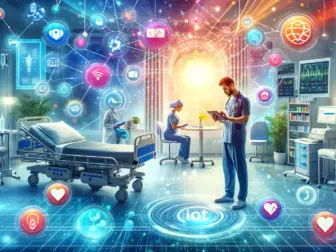Tag - medical devices
Exploring the Impact and Innovation of Advanced Medical Devices in Modern Healthcare
Exploring the Impact and Innovation of Advanced Medical Devices in Modern Healthcare
The realm of healthcare has been revolutionized by the advent of advanced medical devices, which have transformed the way medical professionals diagnose, treat, and manage various health conditions. From life-saving cardiac pacemakers to the simplicity of blood glucose monitors, the spectrum of medical devices encompasses a vast range of technologies that cater to different aspects of patient care.
Medical devices are instruments, apparatuses, implements, machines, implants, in vitro reagents, or other similar or related articles, including software, intended by their manufacturers to be used for diagnosis, prevention, monitoring, treatment, or alleviation of disease. These devices are crucial in assisting healthcare providers to perform their tasks more efficiently while improving patient outcomes.
One of the groundbreaking areas in medical device innovation is in the field of diagnostic imaging. Technologies such as MRI, CT scans, and ultrasound have provided non-invasive ways to look inside the human body, giving doctors a clear picture of a patient’s internal health without the need for surgery. This not only speeds up the diagnostic process but also reduces the risks associated with invasive procedures.
Wearable technology is another burgeoning field that has seen exponential growth. Devices such as fitness trackers, smartwatches, and wearable ECG monitors are empowering patients to take an active role in their health management. These gadgets continuously collect health data which can be analyzed for early signs of deterioration, allowing for prompt intervention before conditions become more serious. Moreover, they offer convenience and real-time monitoring, which is particularly valuable for chronic disease management, rehabilitation, and for elderly care.
In the field of treatment, medical devices like surgical robots and laser systems have redefined precision and efficiency in the operating room. Surgical robots, such as the da Vinci Surgical System, allow surgeons to perform complex procedures with greater control and less fatigue. Lasers, on the other hand, have made it possible to conduct surgeries with minimal damage to surrounding tissues, leading to quicker recoveries.
Medical implants have also seen significant advancements. Cochlear implants and retinal chips are restoring senses, while artificial joints and bones are providing mobility to those who have suffered from injuries or degenerative diseases. These implants not only improve the quality of life for patients but also extend the boundaries of what is medically possible.
The development of advanced medical devices does not come without challenges. Regulatory hurdles, high development costs, and the need for extensive clinical trials to ensure safety and efficacy are all obstacles that manufacturers face. In addition, there is the ongoing challenge of cybersecurity, as many modern medical devices are connected to the internet, making them potential targets for hackers.
Moreover, there is a growing need to ensure that these technologies are accessible to all, regardless of geographic or economic barriers. The disparity in access to advanced medical devices between developed and developing countries is a significant issue, with the latter often lacking the infrastructure and training to implement such technology effectively.
In conclusion, the impact of advanced medical devices on modern healthcare cannot be overstated. They are critical in enhancing patient care, improving outcomes, and opening up new frontiers in medical treatment. However, for these benefits to be realized globally, there needs to be a concerted effort to address the challenges of development, regulation, cybersecurity, and accessibility. As technology marches forward, the future of medical devices holds promising potential for continued innovation and improved health for all.
